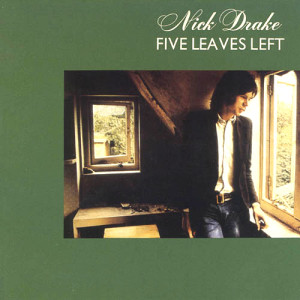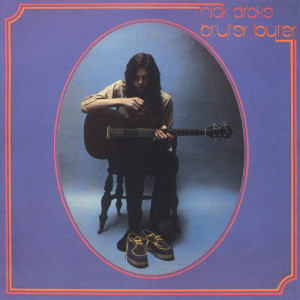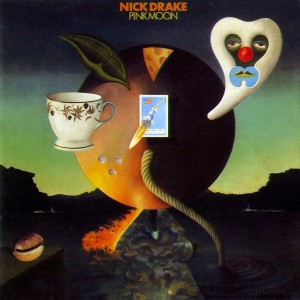Nick Drake – Five Leaves Left Island ILPS 9105 (1969)
Nick Drake’s debut album Five Leaves Left was a rather unique recording that didn’t seem enmeshed in any sort of widespread movement. Fans often remark that his music seemed to come from “nowhere”. He never achieved much commercial success before his early death, partly due to his limited efforts to tour or promote his recordings. Still, his renown has grown tremendously since his death. Nick Drake is the sort of musician who came along ahead of of more widespread efforts to render a feeling of failed promise, which is to say failure to live up to potential. This is very inward-looking artistry. Extroverts may appreciate Drake from a distance without really warming to him more intimately. His music is somewhat elitist. Its lyrics are informed by the sort of poetry studied in “classics” courses in elite universities, and the orchestral treatments and delicate guitar playing (Drake was an impressive guitarist) pay homage to Euro-classical compositions. Yet these are pop songs, which underscores the way the music has a familiarity with highbrow culture but turns away from it, if only slightly. It is the devastating earnestness of Drake’s songwriting and performances that keeps this from being pretentious. This album leans toward the counterculture, but from a privileged place that manages to satisfy every criterion of dominant culture. More than anything, that was Drake’s real achievement. He managed to hold together seemingly incompatible forms in a way that never for a second seems like a juxtaposition at all. The stark, flawless Pink Moon may well be Drake’s finest album, but Five Leaves Left is great too, and hardly a step back at all (saying so is a matter of splitting hairs).



